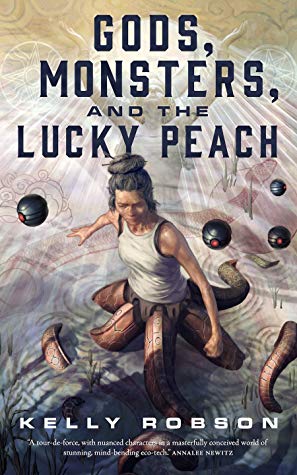- The Good: So many imaginative scifi ideas with great characters and an ending that surprises!
- The Bad: Dense, so slow down with this one
- The Literary: Chapter openings from the POV of a Mesopotamian king
After the Earth has suffered worldwide ecological disasters, Minh is part of the recovery effort to restore river ecosystems in order to make small habitats on the surface livable. But that important project is put on hold when Minh gets an opportunity to time travel to 2000 BC to survey the Tigris and Euphrates rivers. She’s willing to go even if it is for the shadowy company that controls time travel technology.
I love that there is so much going on in in this story. It’s 2267 and Earth is recovering from massive ecological collapse. Humans have spent generations underground, but Minh is part of the first generation to move back up to the surface from the underground hives and hells. Post-plague humans have gotten creative with prosthetics and personal anatomy; Minh herself sports six tentacles below her waist instead of legs and controls the levels of hormones in her endocrine system with a thought.
To win the time travel job, Minh assembles a small team, including an old colleague Hamid, a biologist, and her administrative assistant Kiki, a “fat baby” who never knew the Earth before the current time of stability. Fabian, a by-the-book “tactical historian” is their company guide to the past. The secretive company that controls time travel wants to fix the future by correcting the past, but they also claim that alternative timelines collapse into nonexistence as soon as the company retrieves a time travel team. When Minh’s actions lead to deaths in the past, she starts to question the company’s claims.
Meantime, the King of Ur is dealing with monsters and gods, some of which may be from the future.
“I want to do important work,” Kiki said, and the light that shone from those clear, bright eyes was too intense. Minh looked away. “That’s all any of us want. To not go to waste,” Kiki said.”
